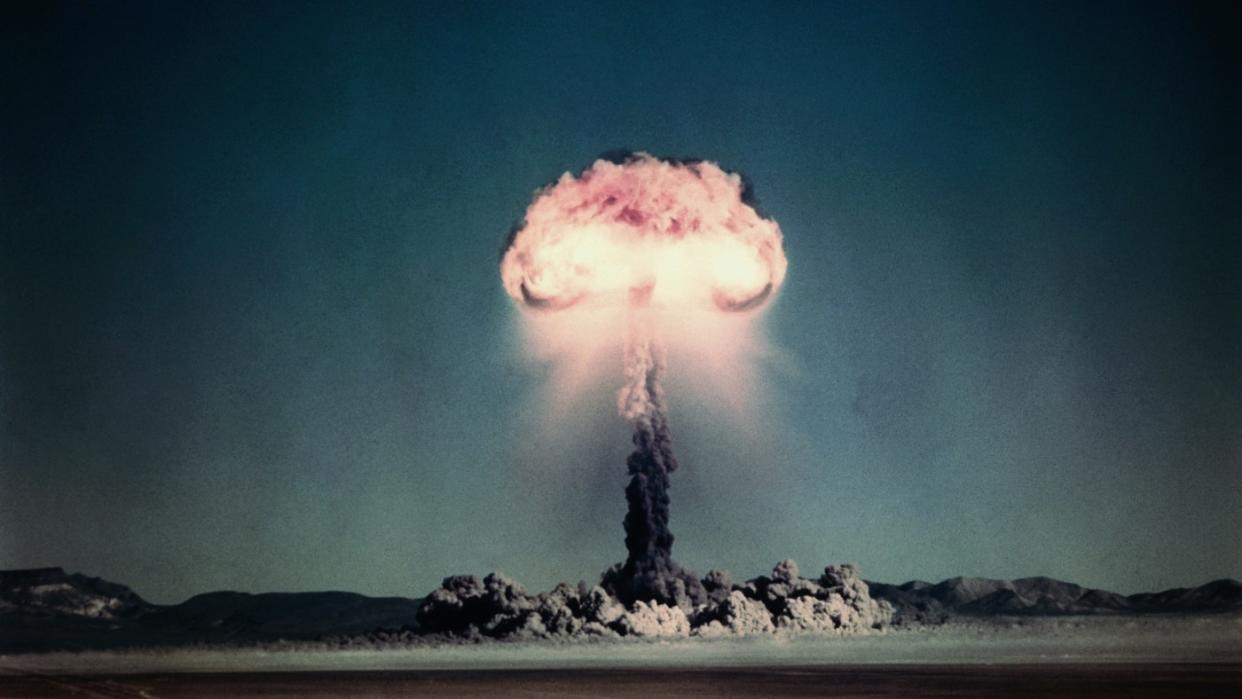How likely is an accidental nuclear incident?

Fears of an accidental nuclear weapons launch have re-emerged after the test firing of a Trident missile from a Royal Navy submarine failed for the second time in a row.
The failure came days after Moscow claimed Joe Biden could cause an "accidental" nuclear war as concerns were raised about the 81-year-old US president's cognitive abilities, said the Daily Mirror.
Worries about an inadvertent nuclear incident have been around as long as nuclear weapons themselves. From "invading animals" to a "faulty computer chip worth less than a dollar", the "alarmingly long list of close calls" shows "just how easily" nuclear war could happen by mistake, said the BBC.
And with more than 12,500 nuclear warheads currently in existence worldwide, forecaster Peter Wildeford said there was a 2% chance of an accidental nuclear exchange between 2022 and 2032. But how might such a scenario happen?
False alarms
"Systems devised to govern the use of nuclear weapons, like all complex technological systems, are inherently flawed," wrote Eric Schlosser, author of “Command and Control: Nuclear Weapons, the Damascus Accident, and the Illusion of Safety", in The New Yorker. This means "millions of people, perhaps hundreds of millions, could be annihilated inadvertently".
Many false alarms occurred during the nuclear age, ranging from the trivial to very serious. In the 1980s, military surveillance computers alerted the US government that 200 missiles were on their way from the Soviet Union. Just before President Jimmy Carter was woken up to decide whether Washington should launch a retaliation, a second call came through saying it was a false alarm.
Technology has advanced hugely since the 1960s and the Nuclear Age Peace Foundation said that "increasingly elaborate accessories" have been incorporated in nuclear weapons and their delivery systems to "minimise the risk of unauthorized or accidental launch or detonation".
'Acts of exhibitionism'
But a loss of co-operation between nations could undo some of this progress. Last year, NBC reported that Moscow had suspended sharing information about its nuclear forces with the US, including notices about missile tests. "There will be no notifications at all," said Sergei Ryabkov, Russia's deputy foreign minister.
There is a danger that tests, or "acts of exhibitionism", will be "taken seriously" if they are not known about beforehand, and a nuclear test "intended to threaten another country" may "one day be misinterpreted as an invitation to engage in a nuclear war", said Glimpse From The Globe.
A new paranoia
The rise of artificial intelligence (AI) has brought new nuclear concerns: that the increasingly intricate and independent technology could accidentally launch a nuclear weapon.
The "gradual integration" of AI into "the most destructive technologies we possess today" is a worry, said The Atlantic, as "the same seductive logic that accelerated the nuclear arms race" could "propel AI up the chain of command".
But leaders are aware of this risk and working to minimise it. A "high-level discussion" involving senior AI experts and US government officials in June last year "laid bare" many of the security concerns from the integration of AI and nuclear defence. The concerns include an "inability to verify and scrutinise AI decision making", said the Bulletin of the Atomic Scientists, and a "higher risk of the accidental use of autonomous weapons".
Bears and moons
Could a random misunderstanding wipe out humanity? A number of incidents during the Cold War suggest it could.
In 1960, the US nuclear command centre received signals from its early warning radar in Greenland that a huge Soviet nuclear attack on the US was under way. Fortunately, before retaliatory missiles were launched, military chiefs realised that the rising moon had caused the alarm, by reflecting radar waves back to Greenland.
In 1962, a bear nearly started a nuclear war. A guard at a US air base in Duluth, Minnesota, saw what he thought was a person climbing the security fence, shot at the intruder and set off the sabotage alarm, which automatically set off alarms at nearby bases. At one base nuclear-armed aircraft were moving down the runway before they were told to stand down.
It is worth nothing that the most alarming near misses came several decades ago and none of them led to the use of nuclear weapons. In the aftermath of the recent Trident error, Defence Secretary Grant Shapps, who witnessed the failure, said he has "absolute confidence" in Trident's submarines, missiles and nuclear warheads.

